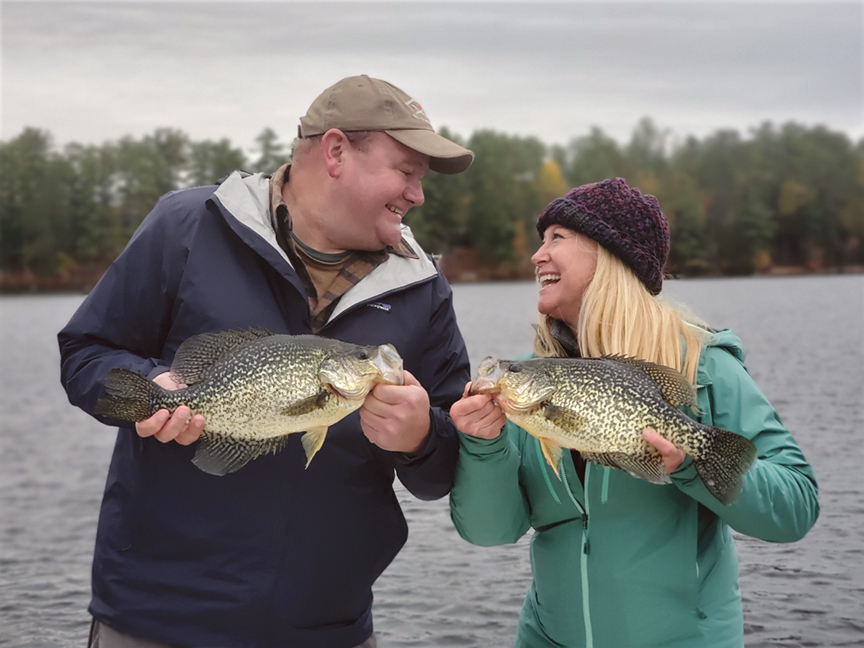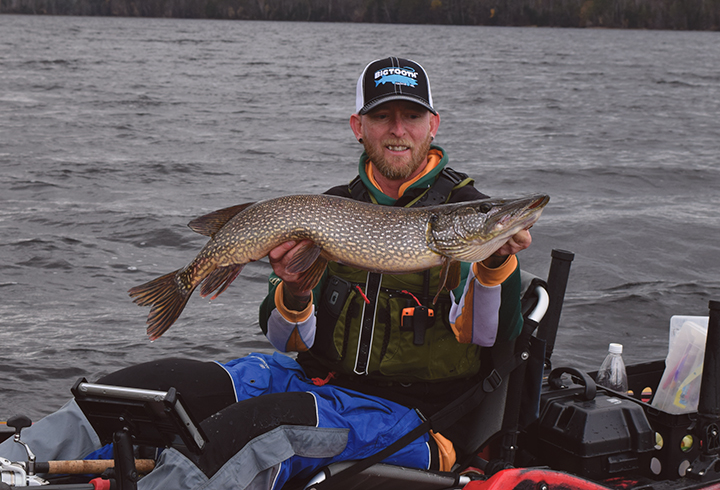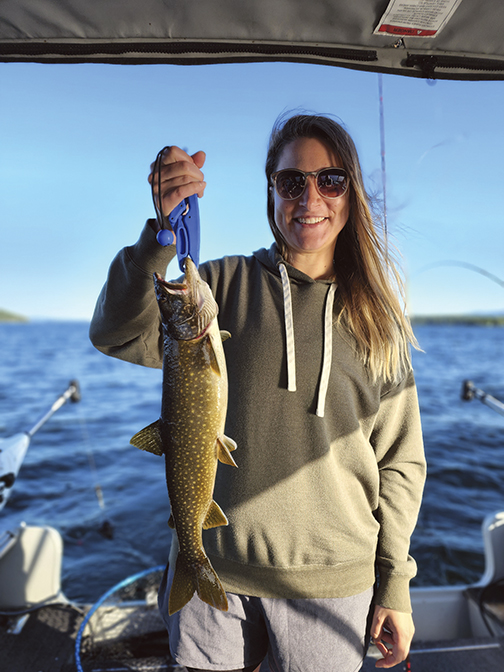You Hired a Fishing Guide…

PHOTO: Paul and Heidi are regulars who book multi-day trips with Tim Moore Outdoors twice each year.

By Tim Moore
Contributing Writer
As I near my fifteenth year as a licensed New Hampshire guide, I often pause to reflect on my experiences with the many clients I have had over the years and the questions they often ask. One of the most common questions I get are, “What’s the worst client you’ve ever had?” My response is usually that I don’t classify my clients as bad or good, but rather easy or hard. There are many factors that dictate the quality of a guided fishing trip. You hear and read story after story about nightmare fishing guides. You hear about guides with bad attitudes, guides that are in over their heads and lack the knowledge or confidence to do what they are doing, sub-par equipment, or guides with little or no personality at all, but you rarely read about how a client with a bad attitude or behavior, unrealistic expectation, or poor communication skills contributed to a less than stellar experience. Here are some tips that may help you if you are considering hiring a guide in the future.
Communication Is Key
A good fishing guide will know how to do his or her job, but they don’t know you. They don’t know what your expectations are. I once had a client who booked an ice fishing trip online for “lakers.” In his request he stated, “There will be five of us, we are all experienced ice fishermen so you won’t have to worry about going over the basics, etc.” He later left a bad review stating that he was expecting to learn how to run and gun for lake trout. Had he indicated that at any time prior to his trip, I would have informed him that I do not offer run and gun trips for groups of more than two, even though that info is specifically stated on my website. His lack of communication resulted in him feeling like he had wasted his money.
Communicating your needs and wants to your guide is one of the most important aspects of the trip. If you book a trip for two, but one of them is a child, it is important for your guide to know that. Like many of my guide friends, I develop a style that works for me for a given species. I do what has been working at that time, but some anglers are willing to risk catching a few less fish to fish the way they want. When I know this, I accommodate to the best of my ability. It’s important to communicate your information expectations when booking a guided trip.

Timing is Everything
Every client expects their guide to be on time, as they should, but many don’t think about how their timing can affect the trip too. Most guides have other work to do when a trip ends, such as cleaning the boat for the next trip, recharging batteries, and gassing up the boat. They need to be back in time to do this. I’m clear about when my trips begin and end. Showing up late for your trip usually means a shorter trip.
Similarly, showing up early isn’t going to get you on the water sooner. In fact, it may delay your departure. I have certain things to do before any guide trip, and I know how long it takes me to do them. I don’t show up earlier than I need to be ready. I love chatting with my clients, and I try to greet all of them when they arrive at their vehicle, but if they show up 30-minutes early and I still have a bunch of work to do, stopping to chat will only delay departure. So, while it is important to be on time for your trip, don’t be too early. I suggest arriving early enough for you to get your belongings together and maybe hit the rest room before you leave, but no earlier.

Tipping
I hate this topic, but it is part of the job. Guiding is a service industry, and tipping is customary. Some clients tip heavy, some are more conservative with their tips, and others don’t tip at all, usually because they don’t know. The industry standard is around 20% for a good trip, with that amount fluctuating depending on the quality of your trip. Tipping is customary, but not required, and should be based on the overall experience, not on how many fish you catch. A professional guide will never tell you that you should tip, even though tipping is customary. I make it a practice not to even bring up the topic. Not everyone can afford to tip and depending on how hard they work, not every guide deserves one.
Occasionally clients will get on my boat or show up for an ice fishing trip with the attitude that it is me and me alone who needs to be great, have a great attitude, know my craft, and make sure they have the best time they can. While this is mostly true, a client’s behavior and attitude can have just as much effect on a fishing trip as the guide’s. Communicate well, be on time and courteous, and don’t try to guide your guide, and your chances of a great trip will only go up. Remember, reputation is everything in the guiding industry. Your guide wants you to have a good trip as much as you do, but you do need to be a willing participant in those efforts. The easier you are to guide, the more attention your guide can give to the fishing.
Tim Moore is a professional fishing guide in New Hampshire. He owns and operates Tim Moore Outdoors, LLC. He is a member of the New England Outdoors Writers Association and the producer of Tim Moore Outdoors Fishing on YouTube. Visit www.TimMooreOutdoors.com for more information.



